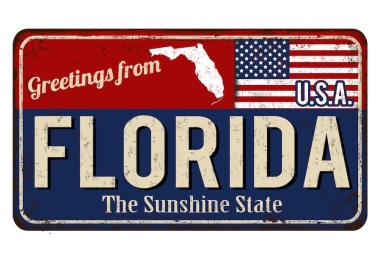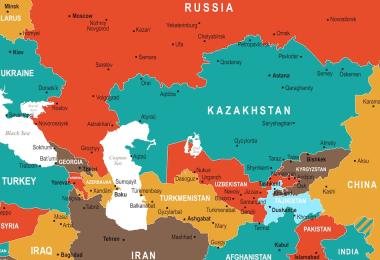Swedes have an enormous interest in the environment. This motivated the Swedish government to implement environmental policies beginning as early as the 1960s – Sweden was among the first countries to establish a governmental agency for environmental protection and to sign the Kyoto protocol. The Environmental Leader, an American news site, calls Sweden the world’s most sustainable country, and in a poll initiated by the European Union, Swedes said that their main concerns are climate change and environmental pollution.
This profound interest in sustainable practices also shows up in the private lives of Swedes. As in many other Northern European countries, the Swedish market for organic food has grown steadily since the early 2000s. In 2013 though, it joined another trend – the health trend. According to Magnus Eklöf, product manager at one of the biggest Swedish organic wine importers WineWorld, already environmentally conscious consumers were joined by a larger group of young, highly educated people with a rising income. Health gadgets, such as fitness bracelets and so-called super-foods became popular, and slowly, buying organic food became part of the Swedish lifestyle. Campaigns by Swedish food retailers like COOP’s The Organic Effect gave the movement yet another push.
The Swedish wine market in a nutshell
With a wine consumption of around 217m L, or approximately 22 L per capita, Sweden is the biggest wine market in Scandinavia. Of these wines, 92% are bought in the stores of Systembolaget, the monopoly. According to Systembolaget, wine accounts for 42% of their sales, and the wine market has experienced a premiumisation trend in recent years. This premiumisation is mainly due to rising excise duties and because consumers are demanding increased quality demands. The biggest producing countries by their import volume to Sweden are Italy, France, and South Africa, which combined account for 50% of wine imports.
Wine is the product category with the highest number of new launches and products. Considering this, it is not surprising that the organic trend has also manifested in wine: currently, 6.6% of the wine sold by Systembolaget is certified as organic. Sales of organic wines increased by 62% from 2014 to 2015 alone, following the organic food trend. Eklöf added that, as a consequence, quite a few import companies and producers have switched from conventional to organic wine. His data shows that the biggest import companies, Oenoforos and Giertz Vinimport, sell 42.5% and 34% of their total volume sales as organic.
Systembolaget’s role
In 2013, Systembolaget announced their goal to have 10% of their assortment (including beer, spirits and others) certified as organic by 2020. When a monopoly sets a goal like that, it sounds like the five-year plans of state-owned companies in the former Soviet countries. But in the Swedish case, a decision to list new products is usually a reaction to an already existing trend, rather than an order from above.
Ulf Sjödin, head of category management at Systembolaget, explained that they constantly poll their consumers and analyse sales patterns. If a new trend becomes apparent, as happened with bag-in-box packaging, the category managers try to make space in the shelves for it. They are well aware of the influence this can have on consumers. Since there is only a limited amount of space on Systembolaget’s shelves, giving a spot to a less commercial wine will expose it to a lot of people. In the case of organic wines, he explained, that extra exposure was given for a particular reason: their own market research discovered that a sizeable number of people were looking for organic products, but were not aware that Systembolaget already had them in their assortment. Another measure was a new internal product evaluation system. According to one of Germany’s major wine producers, it became easier for organic listings to stay on the shelf, because they are granted more time to prove themselves compared to conventional products. Organic wines were granted a longer guaranteed distribution time, whereas conventional wines had to prove themselves in less time.
In late 2013, Kalla fakta, an investigative TV program, suggested that wine contains additives, residual pesticides, and allergens, and that wine would almost have no taste without additives. The programme caused an outcry in the Swedish wine scene and made consumers aware of issues like pesticide and allergen residues. This, combined with Systembolaget’s research and the general trend, convinced the monopoly to implement organic products and sustainability in their strategic goals. New green ‘Ekologiskt’ flags and signs saying ‘Now you can find even more organic drinks in our assortment’ decorated the stores in summer 2014.
Future prospects
There is every suggestion that the organic market will continue to grow. The further increase of organic wines will mainly take place in the lower price segments, and as a result will predominantly affect larger industrial producers. Many of the top-selling brands in Systembolaget’s shops have already either switched to organic production or launched an organic alternative in their portfolio. More reports of residual pesticides and rising quality demands might convince consumers to try the organic alternative for just a couple of kronors more during their next shopping trip. This will also encourage the ongoing premiumisation.
Markus Lundén, a Swedish winemaker at Germany’s Weingut Georg Breuer, believes that when it comes to premium wines, the decision for producers to switch to organic methods is either an ideological one, or fits the concept of terroir-based products. Many premium producers are already certified organic, as the certification is beginning to be expected in the fine wine scene.
The organic wine boom has brought about a change in packaging design and branding. Sjödin said Systembolaget has seen a massive increase of greener images on wine labels and attempted ‘green washing’. Even though some might argue that conventional vineyards are green, and shelter butterflies and ladybugs as well, the misleading qualities of such pictures and the number of self-declared organic certifications has forced the monopoly to react.
Generally, any brand sold by Systembolaget goes through a quality control. Labels that promote drinking, show graphic sex, or deceptive content will be rejected. Green washing falls into the latter category. For this reason, organic wines sold in the monopoly’s shops are labelled uniformly and clearly with an ‘Ekologiskt’ (Organic) tag, which is only given to wines certified by EU Organic, KRAV, Demeter, or ECOCERT.
The Sustainable Choice – was organic just the beginning?
Sustainable Brand Insight, a Swedish think tank, recently showed that the number of Swedes who are educated about sustainability has grown steadily in the last couple of years. From 2015 to 2016, the number of Swedes who became ‘smart’ about sustainability issues grew by 8%. Lena Rogeman, head of sustainable supply chains at Systembolaget, believes this indicates that Sweden is moving towards a tipping point, where the remaining 68% of people that are only moderately interested in sustainability will soon turn to a greener lifestyle as well. If that happens, consumers will start to see organic certifications as a standard and not an added benefit. Leé Griffin, marketing director of the South-African wine producer Stellar Organic Winery, believes that in this case, fair trade and sustainable wines will be the next big thing.
Systembolaget has also started a comprehensive sustainability program, which includes raising consumer awareness to the risks of alcohol and educating them on sustainability issues, as well as monitoring supply chains to ensure that products are manufactured under conditions that are beneficial to both people and the environment. Along with the other Nordic monopolies, Systembolaget has implemented the BSCI Code of Conduct, which covers such issues as fair remuneration, no bonded labour, ethical business behaviour, no child labour, and environmental protection. The monopoly hopes that by implementing these measures through their supply chain, it will have a cascading effect: Systembolaget passes the Code of Conduct to Sweden’s import companies, who then pass them to producers. To achieve this, the monopoly offers training courses, provides support, and organises complementary third party audits of producers. Producers should therefore be aware that the Swedish wine market is becoming more demanding in terms of sustainability.
Conclusion
It is not possible to point out a single reason for the boom but to conclude that an interplay of different factors led to the sudden increase in demand for organic products. The media, store displays, and a growing embrace of healthy lifestyle products have fuelled the demand and led to a sophisticated trend that is now well established in the Swedish food and drink culture. It is also clear that Systembolaget’s actions helped the organic sector to grow. After all, Systembolaget is a monopoly and has the power to influence the market in many ways. Despite this, they could have not started this green avalanche by themselves, and it would have happened without them. But it is most likely that they will use their powers to fuel the sustainability trend in the future as well.
In spring 2016, Systembolaget reached the strategic 10% goal that was initially set for 2020. This shows how strong the organic trend is and that it already exceeds expectations. Consumers will start to ask more questions and become increasingly aware of sustainability issues due to media reports and education. Producers and distributors that want to do good business in Sweden should realise now that the time for change has come.
This article is a summary of The Organic Wine Boom on the Swedish Wine Market, a qualitative study by the authors. For a copy of the report, email Dr Szolnoki at Gergely.Szolnoki@hs-gm.de








